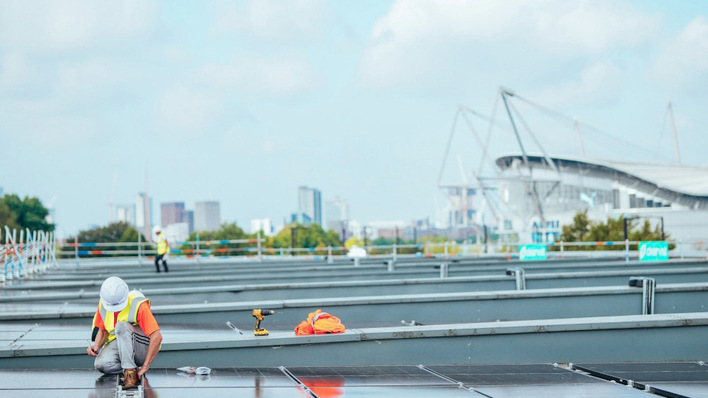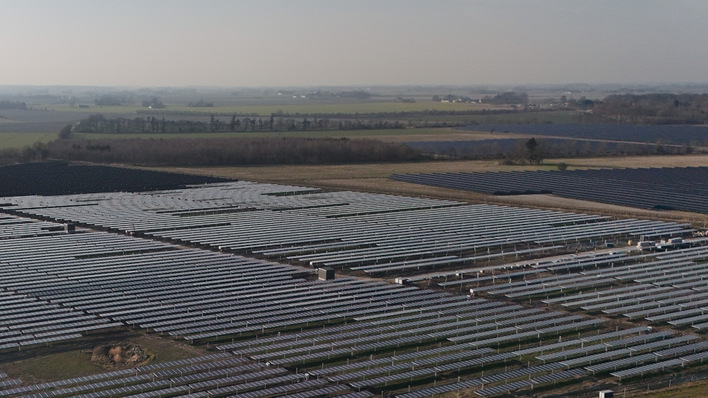© Fronius
Fronius is a famous supplier of solar power electronics, solar storage systems and intelligent control for prosumer solutions. Because in order to meet the goal renewable energy needs to be generated, stored, distributed and consumed efficiently and intelligently. Solar power plays a key role in this world, and together with other visionary thinkers and companies, Fronius is helping to lead the way by developing solutions that are bringing us ever closer to our vision of 24 hours of sun.
Fronius’ vision of 24 hours of sun is the energy world of the future. This world lies many years ahead of us – perhaps several decades; perhaps less. Aspects of this world can already be seen today in all areas of everyday life: in photovoltaics systems on our roofs, in electric vehicles, in intelligent energy management applications in our homes. Although we are a long way off yet, we are making rapid progress.
A future without fuels
Fossil fuels no longer exist in this future world. Nuclear power is also a thing of the past. All the energy required is generated using a large number of renewable energy sources. Solar power, bioenergy, hydropower, wind energy and other renewable sources are actively harnessed via an intelligent and integrated energy production and distribution system, which sets the scene for the world of 24 hours of sun. Solar power in particular plays a leading role in the energy mix of this world.
Compared with other energy sources, solar power is available without restrictions and has the greatest potential for cost reduction. In the coming world of 24 hours of sun, it is possible to exploit this potential so much that solar power is by far the cheapest source of energy. As is to be expected, solar cells are everywhere and are integrated into roofs, façades, the windowpanes of buildings, bridges and vehicles.
An excess of solar power
An excess of solar power is thus produced in the future world of 24 hours of sun. To integrate this extra power into the grid cost-effectively, a comprehensive energy, grid and storage management system is required as well as substantial short-term and long-term storage capacities. Both of these are necessary to compensate for the fluctuations in solar power availability and to adapt to the respective demand, both over the short-term (day vs. night) and long-term (summer vs. winter). In the future world of 24 hours of sun, the challenges this represents could be overcome.
The key to the solution lies in exploiting the potential of a decentralised energy system with substantial decentralised storage capacities in buildings and homes, as well as that of an intelligent energy, grid and storage management system. On the one hand it is therefore possible to generate and consume large quantities of energy locally, which is efficient, protects the grid infrastructure and saves money. On the other, an intelligent energy, grid and storage management system in Smart Grids offers numerous potential optimisation areas for both energy suppliers and system operators.
A constant interplay between thousands of systems
In the world of 24 hours of sun, grid management functions and access to energy stored in thousands upon thousands of decentralised and centralised industrial storage systems compensate for the constant interplay between energy requirements and availability. Expensive peak load grid infrastructure is obsolete, generating significant cost savings.
Companies and residential homes are also constantly optimising their energy production and consumption in the world of 24 hours of sun. With comprehensive energy management and storage solutions, the majority of smart homes and companies are able to control and continuously optimise their energy consumption on an intelligent basis.
Direct supply of the most important energy consumers
In smart homes, the most important energy consumers (e.g. heaters, coolers and hot water producers) are integrated directly into the local energy management system. Even the interplay between energy production, storage and procurement from the grid is controlled on-site and constantly optimised. The majority of residential homes and many companies too are completely self-sufficient in the summer months – and that's not all.
In the world of 24 hours of sun, the potential for harnessing energy from the sun can be exploited to the maximum. This means that many buildings generate more energy than they can consume or store. A lot of buildings are therefore also power plants, which in addition to the on-site consumption and storage of self-generated energy, also feed considerable amounts of energy into the grid. Feeding surplus solar power into the grid has often been a problem in the past, but in the future world of 24 hours of sun, this problem has been resolved. First by using an intelligent and integrated energy, grid and storage management system, and secondly by using power-to-gas technologies.
Store the power to gas
Power-to-gas is the conversion of electricity from renewable energy into flammable natural gas, i.e. hydrogen or methane. In the future world of 24 hours of sun, power-to-gas technology is available on an industrial scale, meaning it is possible to generate solar power and feed it into the grids independent of the respective energy requirements. Surplus mains current is taken from the grid, converted into natural gas and stored.
In the event of increasing energy requirements, the natural gas can be converted back into the required amount of electricity in gas-fired power stations. Natural gas that is not required for energy production is either used in industry, to refuel vehicles, or stored, such as during the winter months to compensate for seasonal shortages.
Decentralised, efficient energy systems – for everyone
In the future world of 24 hours of sun, a large number of technologies are used in this and many other ways as part of an integrated, intelligent and highly decentralised energy system to make energy available – in an environmentally friendly and resource-conserving manner – to everybody who needs it to live in our modern world.
In this context, “everybody” also includes people living in remote regions or in regions without a highly developed energy infrastructure. This is because decentralised, renewable energy technologies are also able to supply electricity to disadvantaged regions with an efficiency never seen before.
Avoid expensive grid infrastructure
Just like many third-world countries avoided the expensive fixed line network for telecommunications and instead opted for much cheaper mobile communication technologies, many disadvantaged countries and regions can also avoid an expensive, centralised infrastructure-heavy network by using decentralised systems for their electricity supply right from the start.
Finally, a decentralised energy system generates an enormous amount of local added value thanks to the implementation of on-site energy production, storage and distribution solutions time and time again. Above all this means the creation of local jobs for a local energy supply. Expensive imports of fossil and nuclear fuels and the accompanying after-effects are eliminated, ensuring that the added value remains with the people who created it.
Working on 24 hours of sun every day
At Fronius they firmly believe in the world of 24 hours of sun. Because everybody wants to live in this visionary world, and we are striving to make it a reality. By this reason we are working passionately every day to develop technologies and solutions that will help to bring us ever closer to our dream of 24 hours of sun. (HS)







